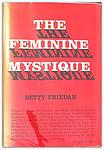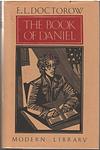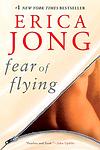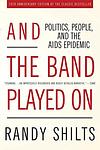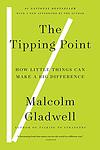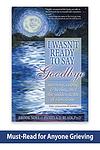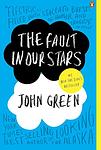The Greatest "Health & Fitness" Books of All Time
Click to learn how this list is calculated.
This list represents a comprehensive and trusted collection of the greatest books. Developed through a specialized algorithm, it brings together 284 'best of' book lists to form a definitive guide to the world's most acclaimed books. For those interested in how these books are chosen, additional details can be found on the rankings page.
Genres
The "Health & Fitness" category encompasses a broad range of books aimed at helping readers achieve and maintain optimal physical and mental well-being. Titles within this genre offer insights into various aspects of health, including nutrition, exercise, weight management, and mental health strategies. From detailed guides on specific workout routines and dietary plans to holistic approaches for stress reduction and wellness, these books often provide practical advice, scientific research, and personal anecdotes to motivate and educate individuals seeking to improve their health. Whether you're a fitness enthusiast looking for advanced training techniques, someone starting a journey toward a healthier lifestyle, or a professional seeking the latest in health-related research, the "Health & Fitness" category offers resources to support a wide array of health goals and interests.
Countries
Date Range
Reading Statistics
Click the button below to see how many of these books you've read!
Download
If you're interested in downloading this list as a CSV file for use in a spreadsheet application, you can easily do so by clicking the button below. Please note that to ensure a manageable file size and faster download, the CSV will include details for only the first 500 books.
Download-
1. The Interpretation of Dreams by Sigmund Freud
This groundbreaking work explores the theory that dreams are a reflection of the unconscious mind and a means of understanding our deepest desires, anxieties, and fantasies. The book delves into the symbolism of dreams and their connection to repressed thoughts and experiences, proposing that they are a form of wish fulfillment. The author also introduces the concept of "dream work," which transforms these unconscious thoughts into the content of dreams, and discusses various methods of dream interpretation.
-
2. The Double Helix: A Personal Account of the Discovery of the Structure of DNA by James D. Watson
This book is a personal account of the race to discover the structure of DNA, told from the perspective of one of the co-discoverers. It provides an insider's view of scientific research, the collaboration and competition, the dedication, the doubt, the exhilaration of discovery, and the often fraught relationship between science and the rest of life. The book also explores the personalities, quirks, and conflicts of the scientists involved in the groundbreaking discovery.
-
3. The Feminine Mystique by Betty Friedan
This groundbreaking book is a sociological examination of the dissatisfaction felt by American housewives in the mid-20th century. The author argues that women are not naturally fulfilled by devoting their lives to homemaking and child-rearing, challenging the widely accepted belief of the era. It explores the idea of the "problem that has no name" - the widespread unhappiness of women in the 1950s and early 1960s. The book is considered one of the catalysts of the second-wave feminist movement.
-
4. The Varieties of Religious Experience by William James
This book is an exploration of the diverse range of religious experiences, from the mainstream to the mystical. The author applies a psychological and philosophical approach, examining the individual, personal experiences of spirituality rather than organized religion. The book covers topics such as conversion, saintliness, and mysticism, and argues that religious experiences, rather than religious institutions, should be the primary focus of religious study.
-
5. Man's Search for Meaning by Victor Frankl
This book is a memoir written by a psychiatrist who survived the Nazi concentration camps during World War II. The author shares his experiences in the camps and his psychological approach to surviving and finding meaning amidst extreme suffering. He introduces his theory of logotherapy, which suggests that life's primary motivational force is the search for meaning, and argues that even in the most absurd, painful, and dehumanized situation, life can be given meaning.
-
6. The Selfish Gene by Richard Dawkins
This groundbreaking book presents a revolutionary perspective on the theory of natural selection. The author argues that genes, rather than individuals or species, are the true units of evolution. He suggests that these 'selfish' genes are driven by their own survival, leading to complex behaviors and characteristics in the organisms they inhabit. This work reframes our understanding of evolution, emphasizing the gene's role in shaping biological life and behavior.
-
7. The Principles of Psychology by William James
This comprehensive work delves into the complex subject of psychology and its fundamental principles. The author explores a wide range of topics including the functions of the brain, habits, the stream of consciousness, the self, attention, memory, and emotions. He combines philosophy and psychology to present a detailed analysis of human behavior and thought processes. The book is considered a classic in the field of psychology and continues to influence modern psychological theory.
-
8. The Book of Daniel by E. L. Doctorow
"The Book of Daniel" is a semi-fictional novel that explores the lives of the Isaacson family, specifically focusing on the children, Daniel and Susan, after their parents, accused of being Communists, are executed. The narrative is a combination of historical fiction and a political commentary, providing a deep exploration of the Red Scare in the United States during the Cold War era. The novel is a critical examination of social, political, and familial dynamics in a time of national fear and paranoia.
-
9. The Common Sense Book of Baby and Child Care by Benjamin Spock
This book is a comprehensive guide to child rearing, offering practical advice and information on a wide range of topics, including feeding, sleeping, health, discipline, and psychological development. It emphasizes a flexible, common-sense approach to parenting, encouraging parents to trust their own instincts and knowledge of their child. The book also discusses the importance of treating children as individuals and fostering their independence and self-confidence.
-
10. Sexual Behavior in the Human Male by Alfred C. Kinsey
This book is a groundbreaking scientific study that provides an in-depth analysis of human male sexual behavior. It presents a comprehensive survey of male sexual activities and preferences, based on thousands of interviews and case studies. The book challenges many societal norms and taboos of its time by revealing the diversity and complexity of male sexual practices. It also explores the psychological, social, and biological factors that influence male sexuality.
-
11. The Man Who Mistook His Wife for a Hat by Oliver Sacks
The book is a collection of clinical tales about patients suffering from a variety of neurological disorders. The author, a neurologist, shares his experiences with these patients, whose conditions range from common ailments like amnesia and aphasia, to rare disorders like visual agnosia and Tourette's Syndrome. The stories are both compassionate and insightful, revealing the complexities of the human brain and the resilience of the human spirit, even in the face of debilitating illness.
-
12. Cancer Ward by Aleksandr Solzhenitsyn
"Cancer Ward" is a poignant novel set in a Soviet cancer hospital in the mid-1950s. It follows the lives and struggles of patients and doctors, exploring their personal histories, relationships, and the political environment of the time. The hospital serves as a metaphor for the oppressive Soviet state, with cancer symbolizing the malignant growth of totalitarianism. The book also explores themes of mortality, the human spirit, and the will to survive.
-
13. Fear of Flying by Erica Jong
The novel follows the journey of a 29-year-old poet who is struggling with her identity and self-worth. She is in an unhappy marriage and fantasizes about a life of sexual and personal freedom. Her fantasies center around the "zipless fuck", a spontaneous and impersonal sexual encounter. She embarks on an affair with a British psychoanalyst in an attempt to realize her fantasies, but ultimately learns that true liberation comes from within.
-
14. The Underdogs by Mariano Azuela
"The Underdogs" is a novel set during the Mexican Revolution, depicting the conflict from the perspective of the peasants who fought in it. The story follows the journey of a poor, illiterate Indian named Demetrio Macias, who becomes a reluctant leader in the rebellion against the federal government. The narrative explores the brutality and chaos of war, the corruption of power, and the often futile nature of rebellion, painting a grim picture of the human cost of revolution.
-
15. Civilization and Its Discontents by Sigmund Freud
This book is a seminal work in the field of psychology, exploring the inherent tension between civilization and the individual. The author, a famed psychologist, argues that civilization's imposition of societal norms and restrictions leads to individual unhappiness and discontent. He delves into the conflict between the human desire for freedom and society's need for order, suggesting that this tension is at the root of much human suffering. The book further explores concepts such as the super-ego, guilt, and the death drive, offering profound insights into the human psyche.
-
16. And the Band Played On by Randy Shilts
This book is a comprehensive chronicle of the emergence of the AIDS epidemic in the United States in the 1980s. It explores how the disease was initially ignored by many health professionals and politicians, leading to its spread and the deaths of thousands of people. The book also examines the impact of the disease on the gay community and the role of various institutions, including the medical community, the media, and the government, in responding to the crisis. It's a powerful critique of the indifference and negligence that allowed the disease to become a global pandemic.
-
17. Gödel, Escher, Bach by Douglas Hofstadter
The book explores concepts of formal systems, recursion, self-reference, and infinity through the interdisciplinary lens of mathematics, art, and music. The narrative intertwines biographical sketches of the titular figures - a mathematician, an artist, and a composer - with dialogues and discussions to illustrate complex ideas. The author uses these figures as metaphors to delve into the nature of human cognition and consciousness, suggesting that our minds are essentially self-referential systems akin to the works of Gödel, Escher, and Bach.
-
18. The Tipping Point by Malcolm Gladwell
This book explores the concept of "tipping points," or the specific moment when an idea, trend, or social behavior crosses a threshold and spreads like wildfire. It delves into the science behind epidemics, both in terms of diseases and ideas, and dissects the factors that can cause a sudden shift in public consciousness. The author uses various case studies, from the sudden popularity of certain shoes to the decrease in New York City's crime rate, to illustrate these concepts.
-
19. Tell Me a Riddle by Tillie Olsen
"Tell Me a Riddle" is a collection of four short stories that explore the lives of working-class Americans. The narrative primarily focuses on a married couple who are struggling with their relationship and their identities in the twilight of their lives. As the wife is diagnosed with a terminal illness, they are forced to confront their past, their choices, and their love for each other. The book paints an intimate portrait of their lives, their struggles, and their resilience, capturing the complexities of human relationships and the harsh realities of life.
-
20. The American Way of Death by Jessica Mitford
This book is a critical examination of the funeral industry in the United States. The author explores the various ways in which the industry exploits the grief and vulnerability of the bereaved to upsell expensive services and merchandise, often with little regard for the actual needs or desires of the deceased or their loved ones. She also delves into the cultural and societal norms around death and burial in America, questioning their origins and the extent to which they are perpetuated by the industry for profit.
-
21. Nana by Émile Zola
"Nana" is a novel that follows the life of a young woman in 19th century France who rises from the streets to become a high-profile courtesan. Her physical charm and manipulative nature allow her to maintain control over her high-status lovers, leading them to financial ruin and even death. The novel is a critique of the moral decay of the French society, highlighting the destructive power of lust and greed.
-
22. Coming of Age in Samoa by Margaret Mead
"Coming of Age in Samoa" is a groundbreaking anthropological study that explores adolescence, sexuality, and social norms in Samoan society. The author lived among the Samoans in the 1920s, observing and recording their way of life, particularly focusing on the experiences of teenage girls. The book challenges Western views on sexual morality and the nature versus nurture debate, suggesting that culture plays a significant role in adolescent development and behavior. The author's observations indicate that Samoan teenagers face less stress and confusion than their American counterparts, largely due to their society's relaxed attitudes towards sex and clear societal roles.
-
23. The Hero with a Thousand Faces by Joseph Campbell
This book explores the theory that important myths from around the world which have survived for thousands of years all share a fundamental structure, which the author calls the "monomyth." It outlines the stages of this monomyth, which include a hero's call to adventure, a descent into the underworld, and a triumphant return. The book also discusses how these universal patterns can provide a framework for understanding human experience and the world around us.
-
24. The Road Less Travelled by M. Scott Peck
This self-help book explores the concept that life is difficult and filled with problems, but we can overcome these issues through discipline, love, and spiritual growth. It encourages readers to confront their personal problems head-on, rather than avoiding them, and to accept responsibility for their actions. The book also delves into the nature of love, suggesting it is less about feelings and more about the act of will. Finally, it discusses the importance of spiritual growth and understanding in achieving a fulfilled life.
-
25. The Fault in Our Stars by John Green
This novel follows the poignant journey of two teenagers, both cancer patients, who meet in a support group and fall in love. Their shared experiences and unique outlook on life and death bring them closer together, and they embark on a trip to Amsterdam to meet a reclusive author they both admire. Through their journey, they explore the harsh realities of living with a terminal illness while also experiencing the beautiful and tragic aspects of first love.
Reading Statistics
Click the button below to see how many of these books you've read!
Download
If you're interested in downloading this list as a CSV file for use in a spreadsheet application, you can easily do so by clicking the button below. Please note that to ensure a manageable file size and faster download, the CSV will include details for only the first 500 books.
Download

